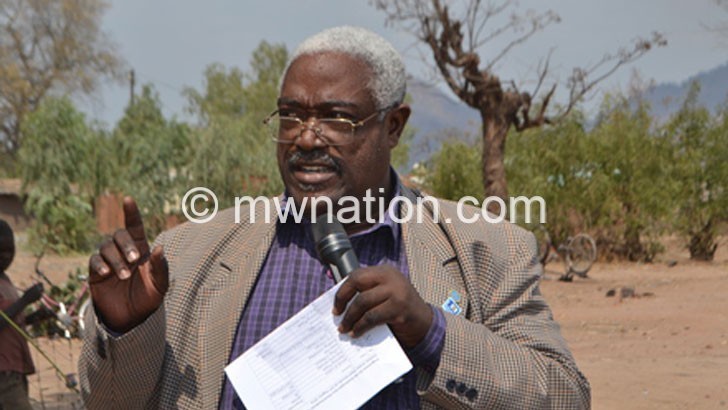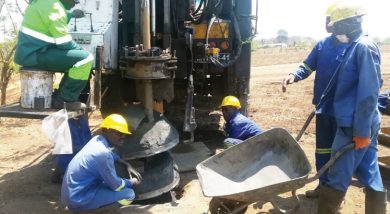Government tipped on fourkey mining projects
At a time government has earmarked agriculture, tourism and mining (ATM) as key sectors to spearhead economic growth, a geological expert has urged authorities to prioritise four key mining projects.
The projects are Songwe Hills Rare Earth Project in Phalombe, Kangankunde Rare Earth in Balaka, Kanyika Niobium in Mzimba and Kayerekera Uranium Mine in Karonga.
The expert, Grain Malunga, who is also former minister of Energy, said in an interview on Tuesday that most large-scale mining ventures require huge capital investment.
He said: “ATM Strategy’s initial success is four projects focusing on rare earth, niobium and uranium.

“These projects can easily be unlocked if the government understands that capital markets will look at the fiscal regime to give a flexible debt service and good investment return on investors.”
Malunga said the four projects have already proven viable with a lot of stages passed and with necessary support, the extraction process would start earlier and enable the country to benefit economically.
Malunga urged government to move with speed to ensure that these mining projects take off.
Minister of Mining Monica Chang’anamuno said in an interview on Tuesday that things will start to move fast following prioritisation of mining as strategic sector.
He said with this projected improvement, the country is poised to benefit from mineral resources such as rare earths, graphite, uranium, gold and gemstones, among others, which are instrumental to industrialisation in line with Malawi 2063, the country’s long-term strategy.
Speaking during the Mining Investment Forum in Lilongwe a fortnight ago, Lotus Resources Limited managing director Keith Bowes said they are looking at various options of raising finance, including the stock market.
Malawi has a number of mineral resources, some mined for decades, while others hold untapped potential.
According to the 2024 Malawi Government Annual Economic Report, since 2021, the sector has experienced steady growth due to a supportive legal and regulatory environment.
“Recognising its immense potential, Malawi 2063 prioritises mining as a key driver for economic development,” reads the report in part.
Despite its potential, the mining sector currently contributes only one percent to the gross domestic product (GDP), according to the report.
Since the closure of Kayelekera Mine in 2014, the mining sector contribution to GDP has been declining, but at its peak in 2010, the mining sector contributed about 10 percent to the national economy.





